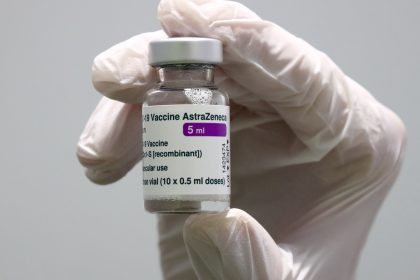Smile! How Your Oral Health Impacts Your Overall Health

WASHINGTON — Brushing your teeth is, hopefully, a part of your daily routine. Without thinking, you brush in the morning and at night. Maybe you also floss. Beyond helping you look and feel fresh, the state of your teeth and gums plays a major role in your overall health.
We’ll explain the link between how a healthy smile contributes to overall well-being, risk factors, bad habits to avoid and leave you with some tips to care for your mouth.
How Oral Health Affects Overall Health
Many people may think that dental health is separate from the rest of their health. However, your mouth is the gateway to your body. Letting bacteria build up in your teeth, gums and saliva can cause it to enter your bloodstream and travel throughout your body.
Health Issues
Oral health issues include tooth decay, gum disease, tooth loss, oral cancer and birth defects.
Research shows a link between oral health issues and the following diseases:
- Cardiovascular disease.
- Endocarditis: a heart disease where bacteria from your mouth can inflame the lining of your heart.
- Respiratory disease.
- Gastrointestinal disease.
- Kidney disease.
- Pneumonia.
- Pregnancy and birth complications.
There is a reciprocal link between certain conditions and oral diseases. The following conditions put you at a higher risk for developing oral disease:
- Type 2 Diabetes.
- HIV and AIDS.
- Osteoporosis.
- Alzheimer’s.
- Fibromyalgia.
- Certain Cancers.
- Rheumatoid Arthritis.
Problems with your teeth, gums, and mouth can also impact mental health causing trouble with speaking and learning, leading to low self-confidence and difficulty with socializing and finding employment.
Socioeconomic Factors
In a 2022 report, The World Health Organization estimated that 3.5 billion people worldwide suffer from oral diseases with three out of four people affected living in middle-income countries.
Socioeconomic status directly impacts oral health, and oral diseases are more likely to affect vulnerable people. In the United States, the CDC reports that children from low-income families are twice as likely to have tooth decay and cavities than children from high-income families. Untreated cavities can lead to worsening oral diseases over time.
In 2022, the World Health Assembly launched an initiative to provide universal health coverage for oral health for all individuals and communities by 2030.
Bad Habits to Avoid
If you have the access and ability to care for your oral health, here are some bad habits to avoid that can worsen your oral health.
- Smoking and tobacco use.
- Excessive alcohol intake.
- Unmanaged stress.
- Diet high in sugar.
- Skipping regular dental cleanings and check-ups.
Tips for Healthy Teeth and Gums
Here are some tips to care for your teeth and gums (if you’re able to).
Oral Hygiene Tips
- Brush your teeth at least twice a day. The Mayo Clinic recommends brushing for two minutes with a soft-bristled brush and fluoride toothpaste. An electric toothbrush can give you a more thorough scrub.
- Floss at least once a day to remove plaque and bacteria that builds up between your teeth. Some studies show that flossing before brushing is more helpful in removing plaque.
- Use mouthwash to help clear out more bacteria after flossing and brushing.
- Replace your toothbrush every two to three months. If you have a cold or infection, replace your toothbrush as soon as you feel better to avoid reinfection.
- See your dentist at least twice a year for a check-up and cleaning. Have x-rays done to check for further conditions.
- Speak with a mental health professional if you have dental anxiety so you can best care for your teeth.
- Teach your kids good oral hygiene habits when they’re young.
Nutrition Tips
- Foods high in added sugar can harm your teeth.
- Eating foods high in calcium and phosphorus helps protect tooth enamel. Some calcium-rich foods include dairy products, fortified foods, tofu, leafy greens and almonds. Some phosphorus-rich foods are poultry, fish, meat and eggs.
- Fruits and vegetables rich in vitamin A and vitamin C, like carrots, spinach and citrus fruits, are good for your gums.
- Drink plenty of water — especially if you do enjoy sugary foods.
Floss, Brush, Rinse, Repeat
Unfortunately, not everyone is able to care for their teeth and get regular check-ups. Some people may also have medical conditions or genetic factors that lead to oral diseases. If you’re able to, practicing good oral hygiene, seeing your dentist regularly, and eating healthy foods rich in vitamins and minerals can set you up for a healthy smile made up of strong teeth and gums.
You can reach us at [email protected] and follow us on Facebook and X (formerly known as Twitter)

























